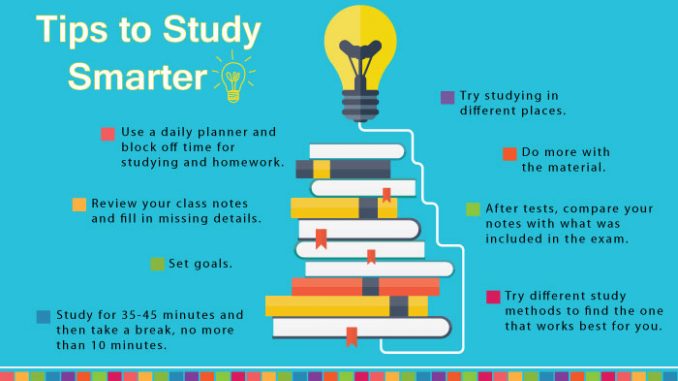
Michelle Barbero, Staff Writer |
On Thursday, October 12, New Student Services offered a “Study Like a Pro” event. This opportunity took place at 4 p.m. at the Center for Multicultural Experiences in Lee Hall. Students not only received LEAD credit for attendance, but also gained important advice on different methods of studying.
Amy Course-Powers, Coordinator of Peer Tutoring Services at the Center for Academic Development and Enrichment, presented an informative presentation. Powers was accommodating to the needs of the students in the room and tried to make the presentation as individualized as possible. First, students went around the room listing study concerns that they wanted to have addressed. People brought up that they had issues with procrastination, organization, and staying focused.
The presentation opened with a poll question: “What matters most while you’re studying?” Most people voted for the answer choice, “How you process information,” which turned out to be the correct choice.
“The way we think while studying matters most,” explained Powers.
Retrieval practice is a way of thinking that every student should exercise. When students study, they must be able to recall concepts and ideas that they learned about from teachers or assigned readings. This method is better than simply looking over a study guide without trying to remember the information when it is not right in front of you. Many people think that they know something until the time comes to remember it without a prompt.
According to The Learning Scientists’ blog, when you practice retrieval, “you’re more likely to remember the information later, and also more likely to be able to use and apply the information in new situations.”
Pretesting is also an important strategy that students should practice while learning new concepts. One way for a person to pretest is to go through practice questions that are in textbooks before the professor talks about said topic in class. Gaining a familiarity with the material will make it easier to understand during lecture and, ergo, remember it after class.
When studying, it is also important to be aware of possible distractions that surround students every day. Cell phones are one of the most common and most powerful distractions that people are faced with today. Powers advised students to turn their phone off for one hour while studying.
She promised, “You will notice the difference.”
Powers went on to explain that students should be mindful of elaboration while studying. People should strive to make visual connections when possible and ask themselves, “What would this look like in the real world?” Khan Academy offers free online practice videos that can assist with this process.
Students should also pay attention to the distinctiveness and presentation of what they study. Ideas should be compared and contrasted from one another. When it comes to presentation, it has been shown that making up personal examples to relate back to concepts has helped students’ memorization skills. Students should put themselves in the story. Powers shared an example of this, recalling the time that a biology tutor made a student stand up and eat to feel how food travels through the body. Creating a memory related to the term helps the student understand and remember the term itself.
Another popular method of studying is to create note cards. However, Powers pointed out that note cards can be messy, and the act of creating them can actually cause ideas to become isolated from each other.
Proper note cards should be large and have the term on the front. On the back of the card, there should be four categories, including the term’s textbook definition, a personalized paraphrase of the definition, an example of the term, and a visual representation of the term. If someone needs to memorize the term “lake,” they can include the following on the back of a note card: the official definition, which is, “a large body of water surrounded by land;” a paraphrase such as, “an isolated mass of water;” an example of a lake, such as “Green Lake;” and a simple drawing of water surrounded by land.
After creating note cards, students should quiz themselves and see if they can answer questions derived from previous tests that were taken in class. Studying an old test allows one to observe what went right and wrong on said test, and it helps one figure out the professor’s testing style.
Having numerous and diverse methods of studying helps students make more connections with the material, making it easier to remember. Interacting with the content in many different ways – such as by writing terms out, saying them out loud, watching and listening to videos about the subject, etc. – allows the information to stick better.
A lesser known but very effective way of studying is to use a Livescribe pen in class while taking notes. Livescribe pens not only allow you to write, but also to record the lecture. For more information on Livesribe pens or study tips, please visit CADE in Alumni Hall.
Leave a Reply